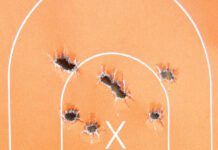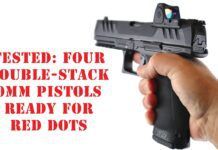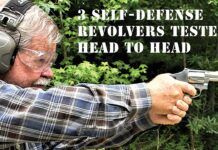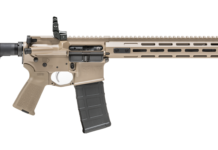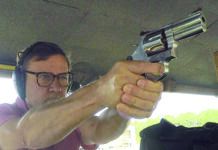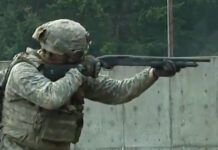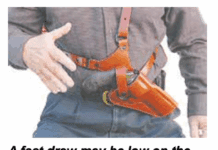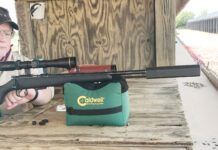One of the frustrating aspects of the recent gun-restriction debate has been the astounding timidity of the gun industry, gun-industry trade groups, and political supporters of guns to speak out against the erosion of our gun-ownership rights. Basically, the assumption by the other side is that anyone who owns a gun is simply a criminal in waiting. They portray gun owners-me and you-as being cocked and locked, needing only a bit of trigger pressure before we go off on a killing spree.
Of course, that characterization is personally insulting, and the irritation of law-abiding citizens being described that way is only compounded by the accommodation of gun representatives in the political and legal debate. Its time for boldness, to make our arguments in a way that leaves no doubt that litigation-happy city governments, gun-control advocates, and misguided celebrity hand-wringers simply dont know what theyre talking about. Here are three places to start:
• Gun and ammunition manufacturers and industry distributors should immediately cancel or not supply municipal firearms contracts with cities who are suing them. Nearly every large police department in the country receives very nice discounts on its firearms and ammunition requests, along with expedited delivery. I suggest that NSSF, NRA, and other gun groups start asking manufacturers to obviate the good deals many municipal law-enforcement agencies get. The turnaround effect: Municipalities would immediately be forced to buy their guns in the retail environment in which they are suing. How could they continue to have legal standing to sue if they were involved in the promiscuous distribution network they claim oversupplies products to the retail buyer?
• Gun manufacturers, distributors, and dealers should immediately begin pointing out that in many cases-such as New Orleans-the city government itself is the largest conduit of firearms in the state. Heres how it works: The city buys a lot of guns for its peace officers. These guns wear out, break down, and otherwise become unsuitable for law-enforcement work. To recapture some of their capital costs, the cities sell their used guns into the local (and nationwide) market, and apply the funds generated to the purchase of new guns. For instance, Ive learned from one company that when guns it sold to New Orleans were replaced, the used guns were sold to a distributor, who then moved the product into the Chicago market. It seems to me that the city government of New Orleans was at least partially liable for Chicagos oversupply problem, and should be named as a co-defendant in the Chicago suit.
• Gun manufacturers, distributors, dealers, and trade groups should begin searching for people harmed by restrictive gun laws, and try to certify them for a civil action. For instance, to this layman it seems perfectly reasonable (based on current legal theories in play) that a woman who tries to arm herself to prevent being beaten by her boyfriend, but who runs afoul of waiting-period restrictions, would have legal standing to sue for recovery of medical costs when he does assault her. The woman could likely show cause that the law prevented her from protecting herself, and the injury occurred as a direct result of the law, so why shouldnt the city government be liable?
Outrageous? Legally tenuous? Thats what we said about the gun suits.
-Todd Woodard



